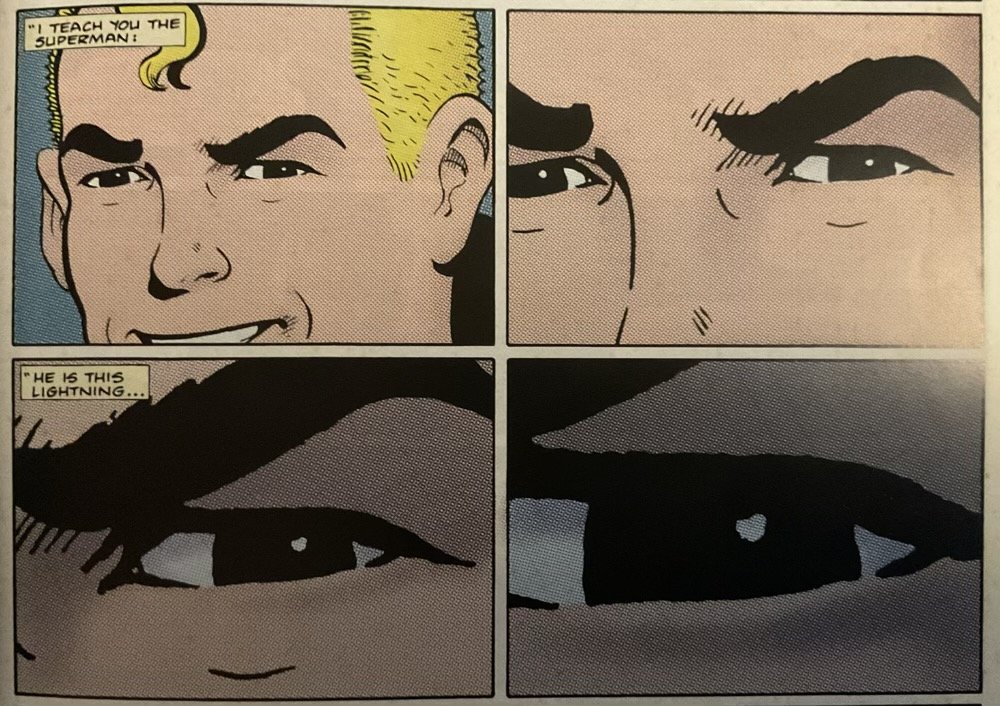reading/20230306
My complete reading list, from 2013 to the present, lives here.
MIRACLEMAN OMNIBUS (“The Original Writer” / Leach, Davis, et al, 2022)
After years, now, of hearing snippets of the legal saga around the character, I'm relieved to find that the actual MIRACLEMAN stories are far more engaging than the behind-the-scenes ones: Anglo's creation proves the old axiom, "necessity is the mother of invention," as he created a world which is, to me at least, more rich and interesting than the Marvel family he was replacing. Moore's 1982 transformation of it into the mythological sci-fi epic he crafted (while haven't read any of Gaiman's run, I will seek them out – though I’m still confused as to how these are collected and released) is nothing short of astonishing, a prime example of the staying power via elasticity inherent in those considered the greatest among our pantheon of four-color gods (and monsters).
Mentioned it in my PostScript on TITUS GROAN, but I’ll reiterate: was fascinating to read Moore and Peake, one of the former's biggest influences, simultaneously: the influence is apparent – in the Guardian interview quoted there, Moore says that "(Peake's) were probably the first books where I began to understand just what you could do with writing: how he could conjure this entire complex environment and these almost fluorescent characters that stayed in your mind for ever": complexity of environment and fluorescent characters who stay with you: in MIRACLEMAN, check and double check (not sure I've experienced such utter comics heartache as I did in the resolution pages of the Kid Miracleman saga).
Will eventually re-read because, as with all of Moore's work, I can't help feeling like I've missed something, a feeling that it rewards more either in subsequent read-throughs or in monthly, serialized readings (the only series of his I've read in serialized was my beloved and personally influential 1963 as that was when my collecting days overlapped with the majority of his serialized output).
One complaint: more than half of this $100 tome is dedicated to supplmental material and, while the original art and Anglo originals are undeniably great and the history of the character's trials and travails is fascinating, the latter, especially, is nothing I couldn't find online. Unnecessary padding.
My complete reading list, from 2013 to the present, lives here.
TITUS GROAN (Peake, 1946)
Thanks to his sublime cadence, his intricate and labyrinthine use of limited locations, and deeply-drawn characters, Peake managed the heretofore impossible with the first of his Gormenghast novels: crafted a fantasy series that I'm itching to read every bit of.
As I've also been reading Alan Moore's (or, rather, "The Original Writer") run on MIRACLEMAN, the influence of Peake on Moore is even more apparent – indeed, I think it was this article that pushed me to check out Peake’s work as Moore’s description intrigued me):
To be certain, Peake's wonderful, "fluorescent," characters will stay with me, friends for life; a delight. My complete reading list, from 2013 to the present, lives here.


